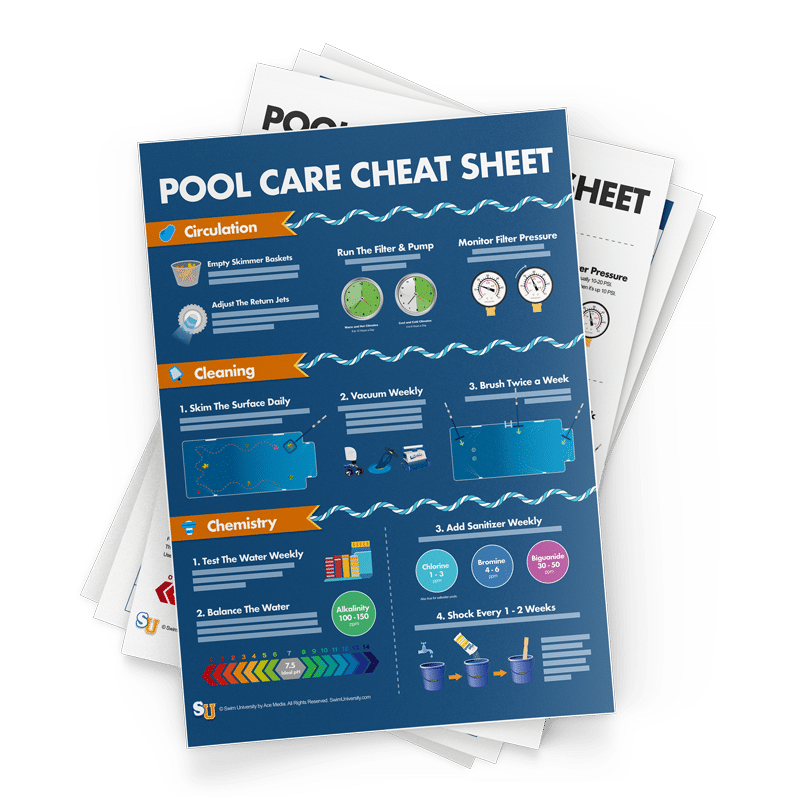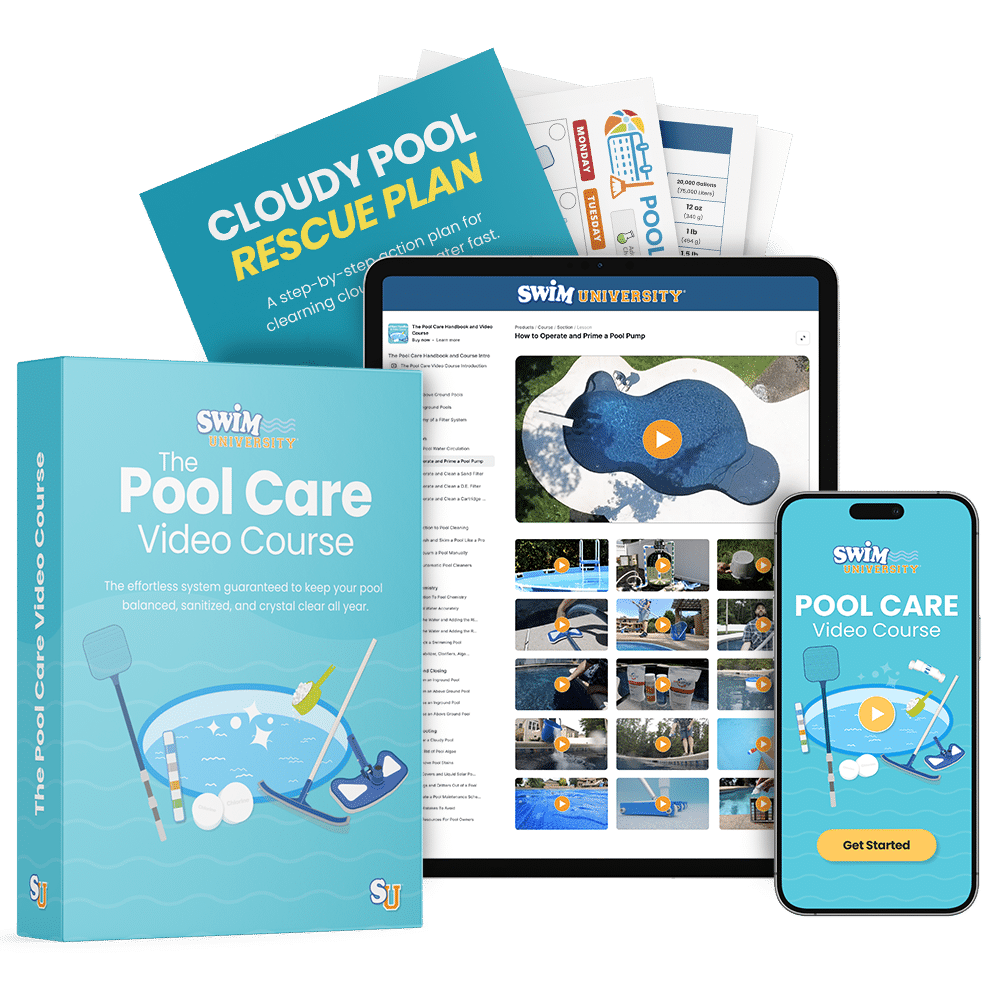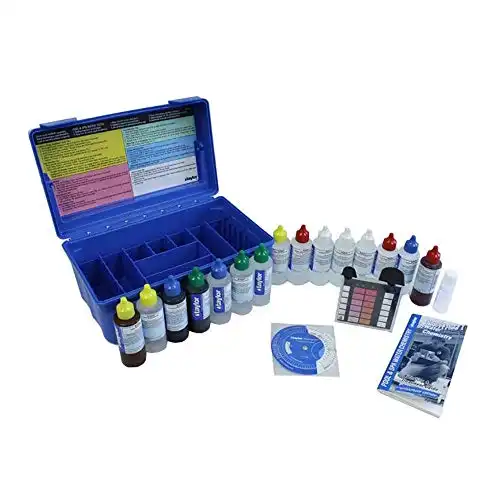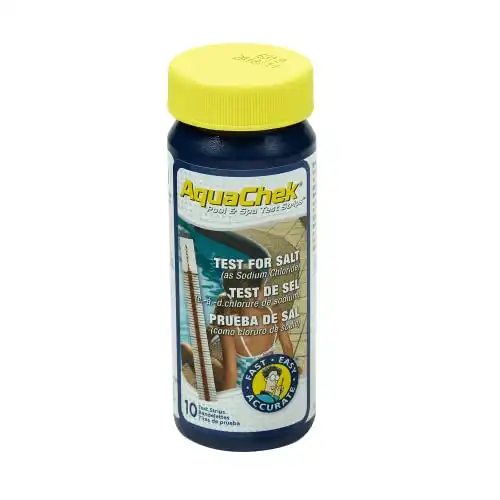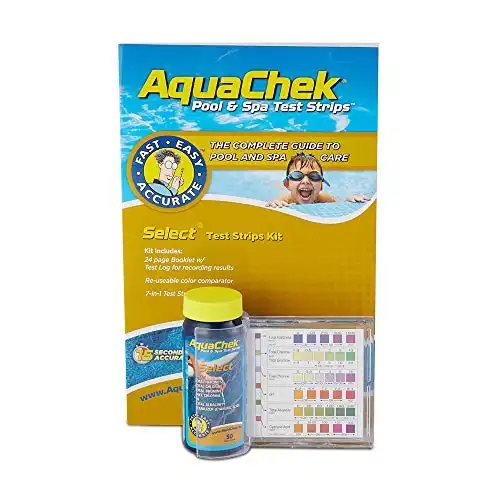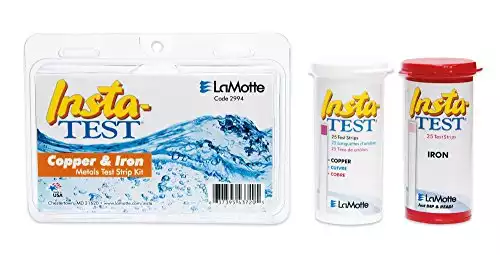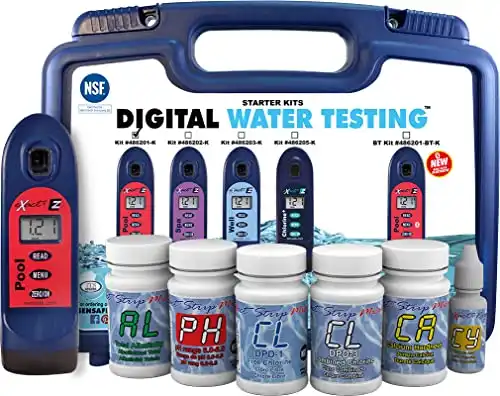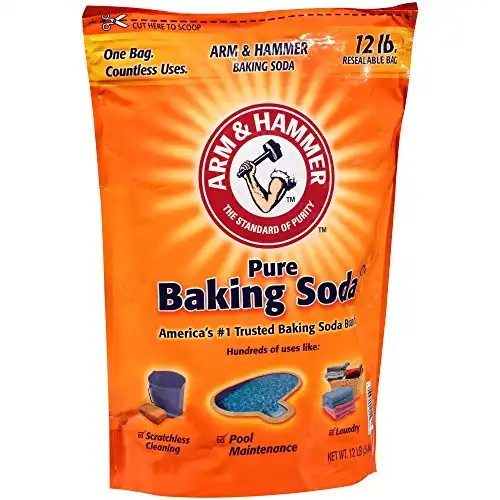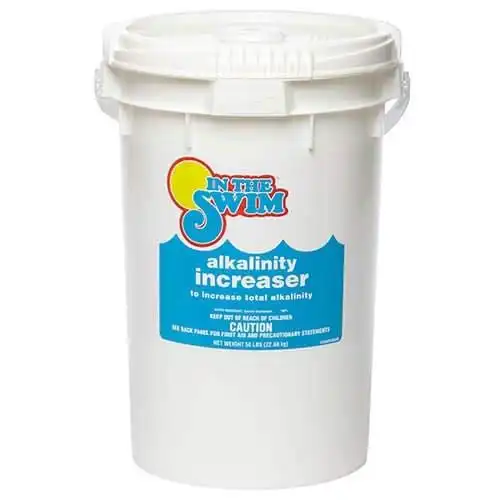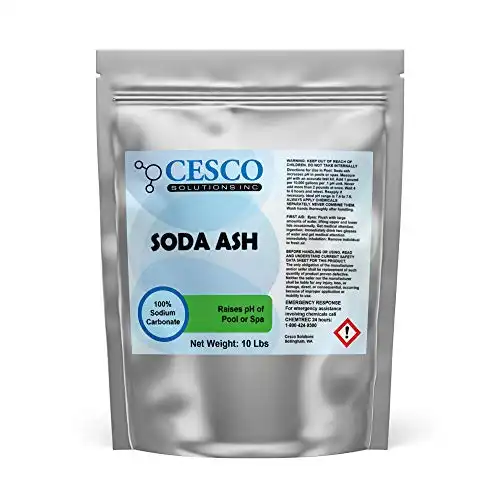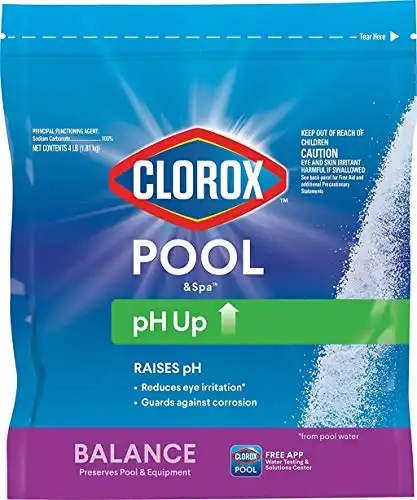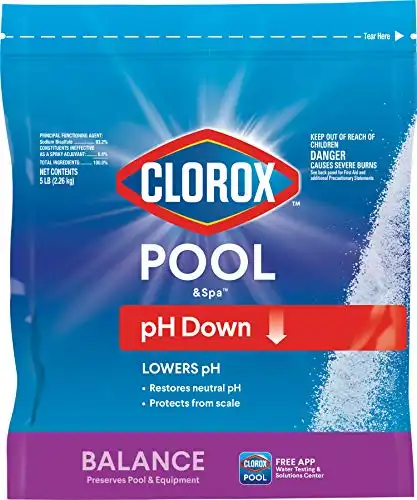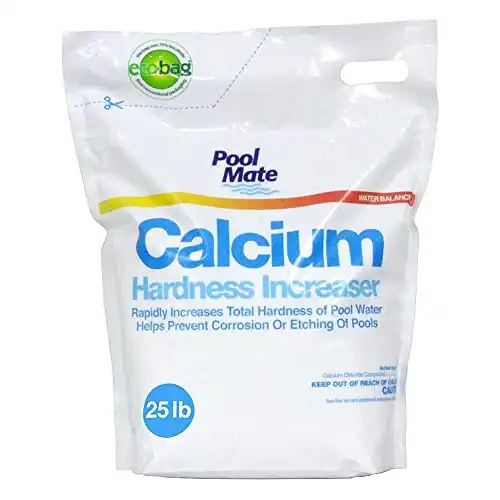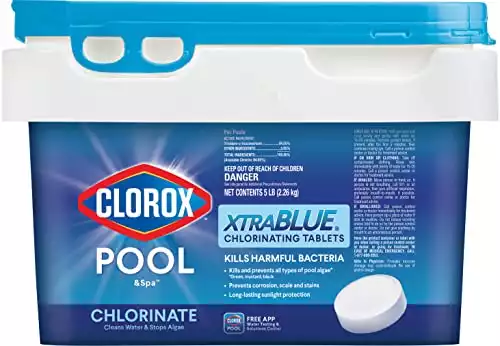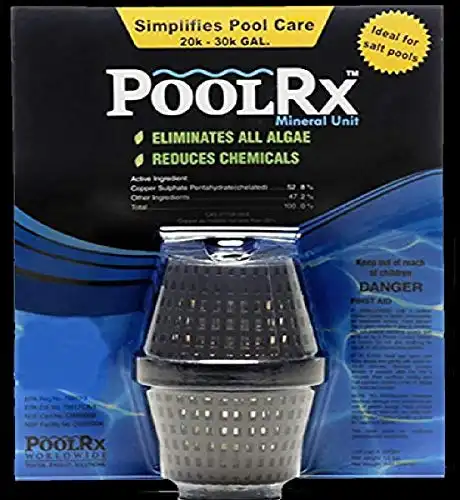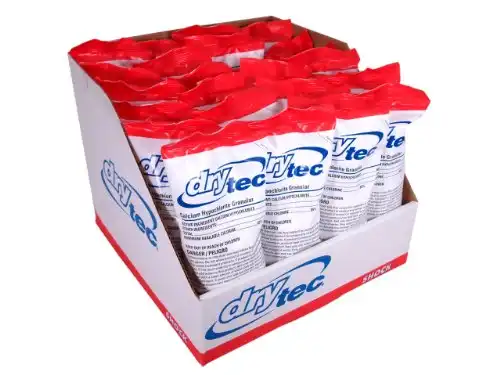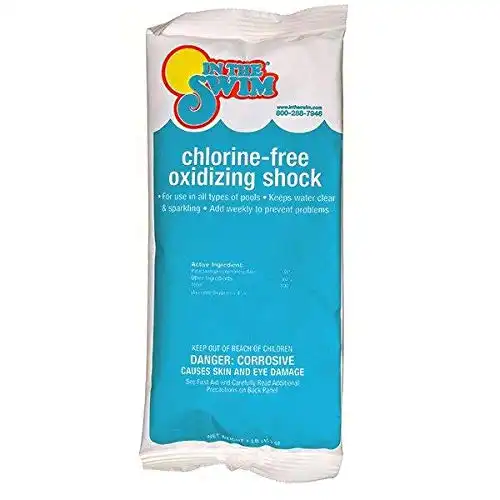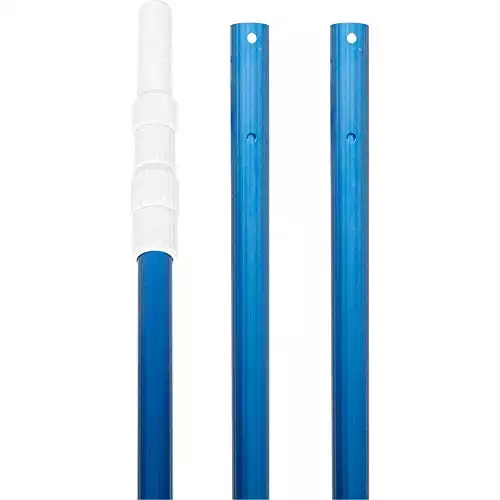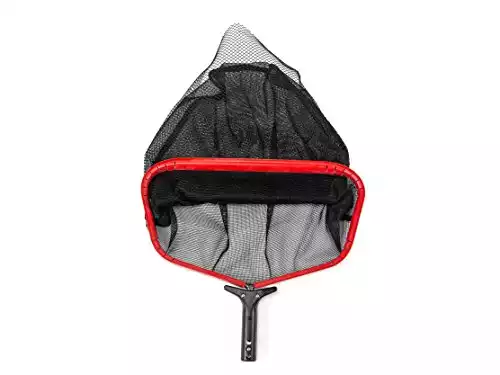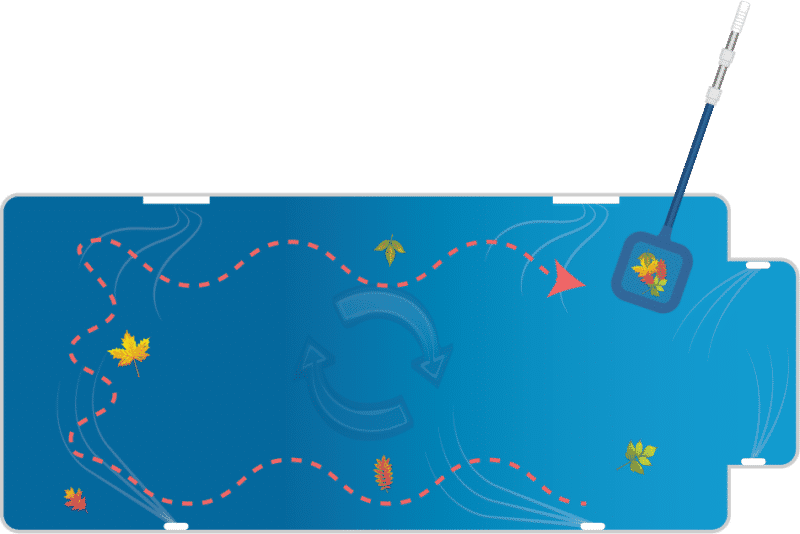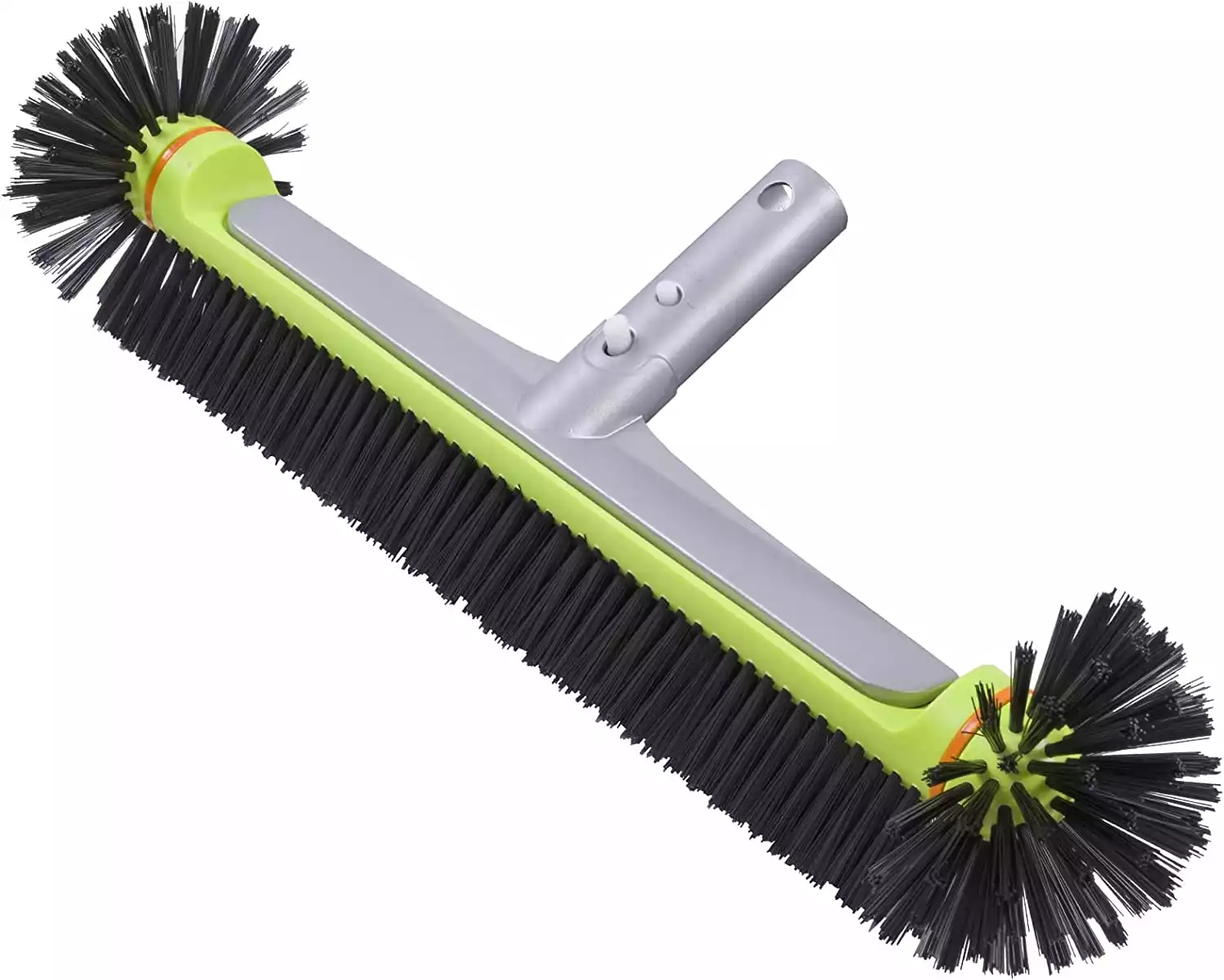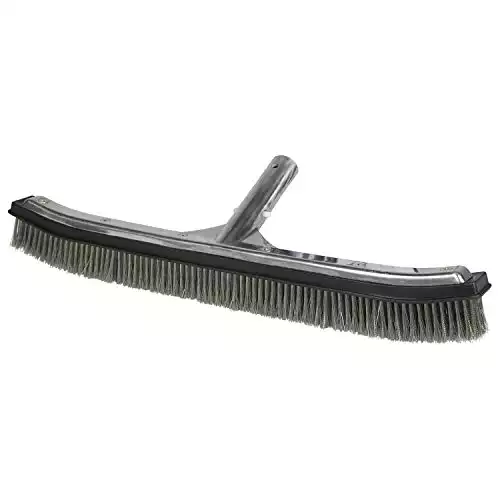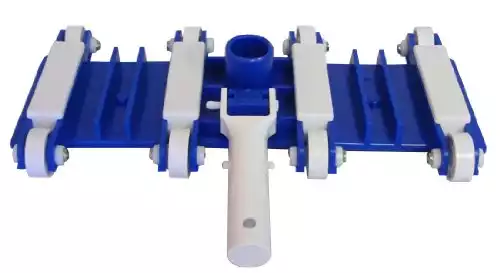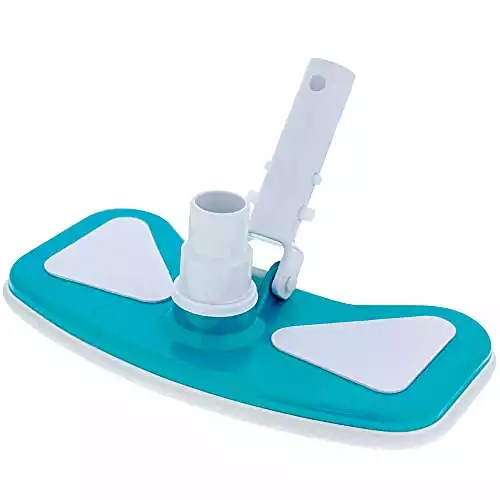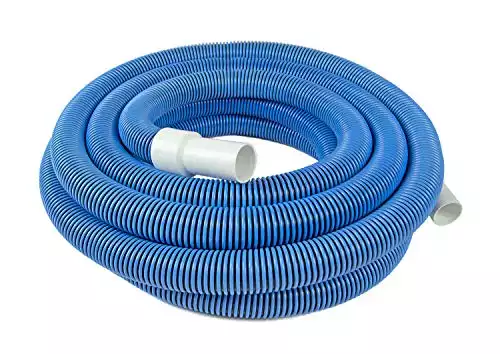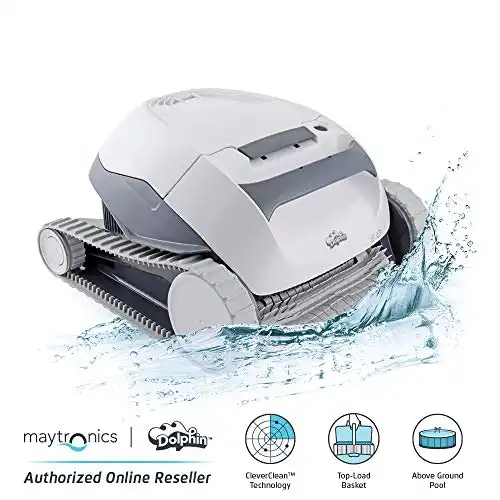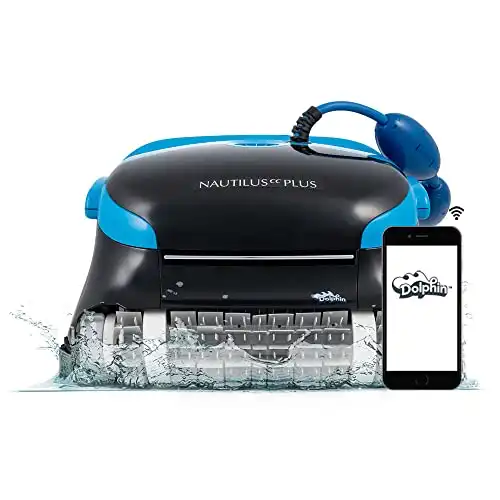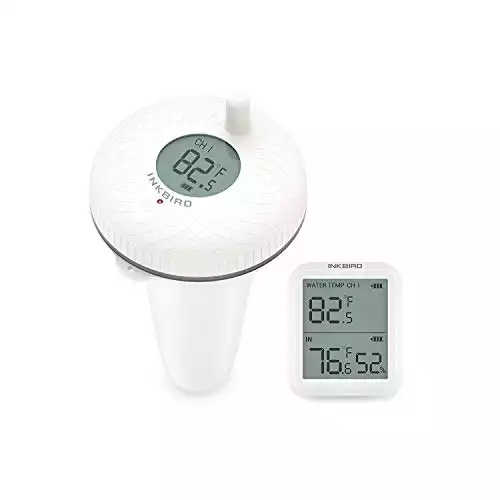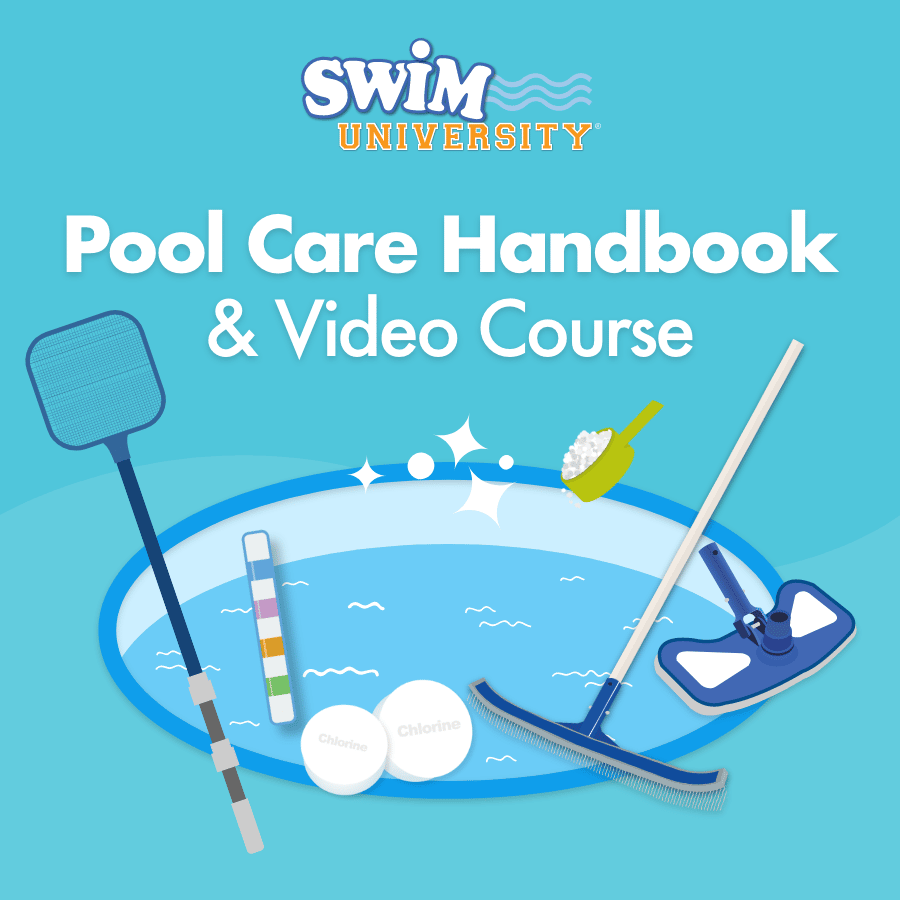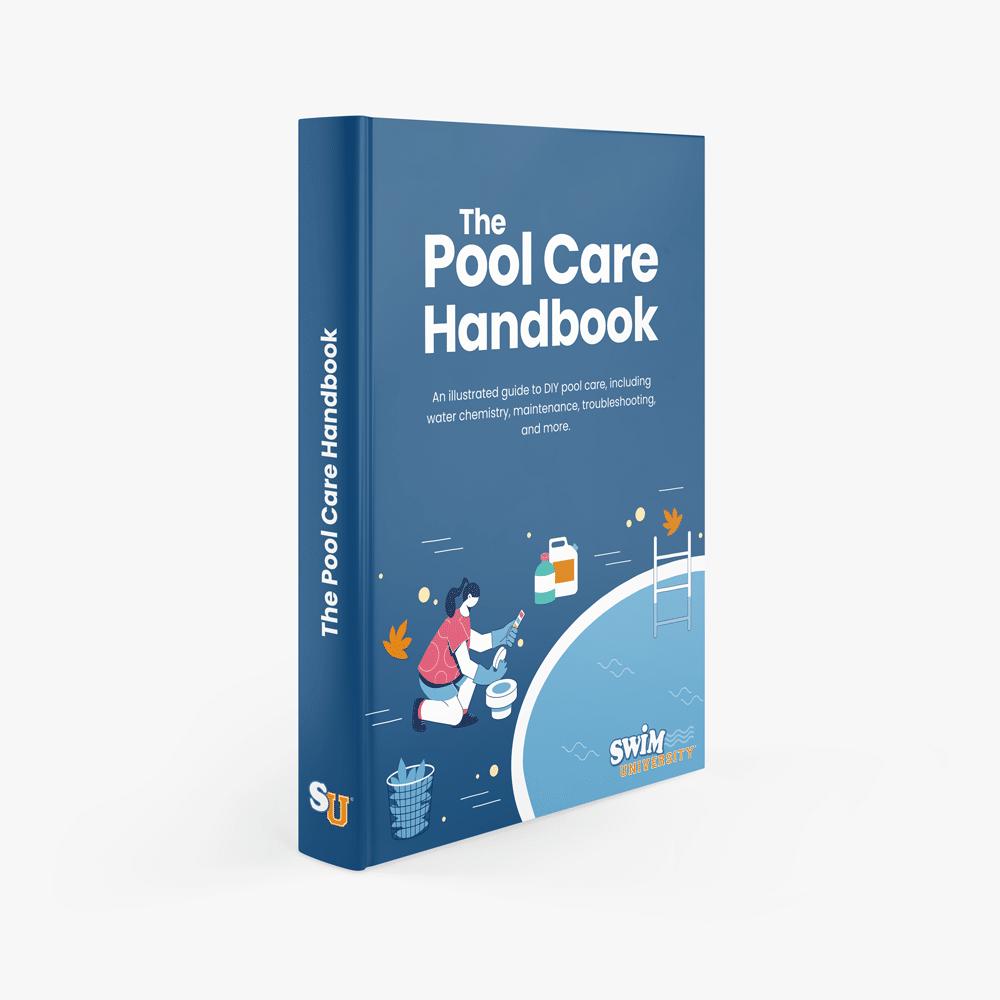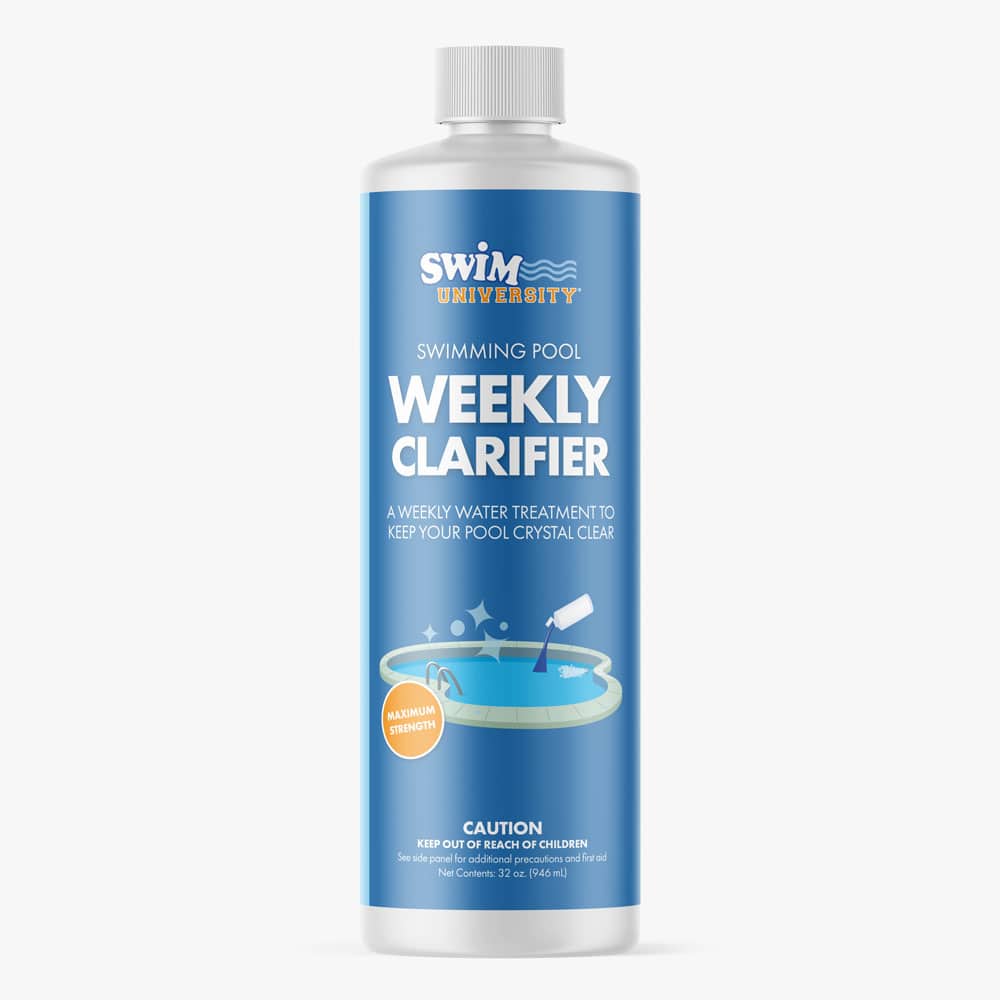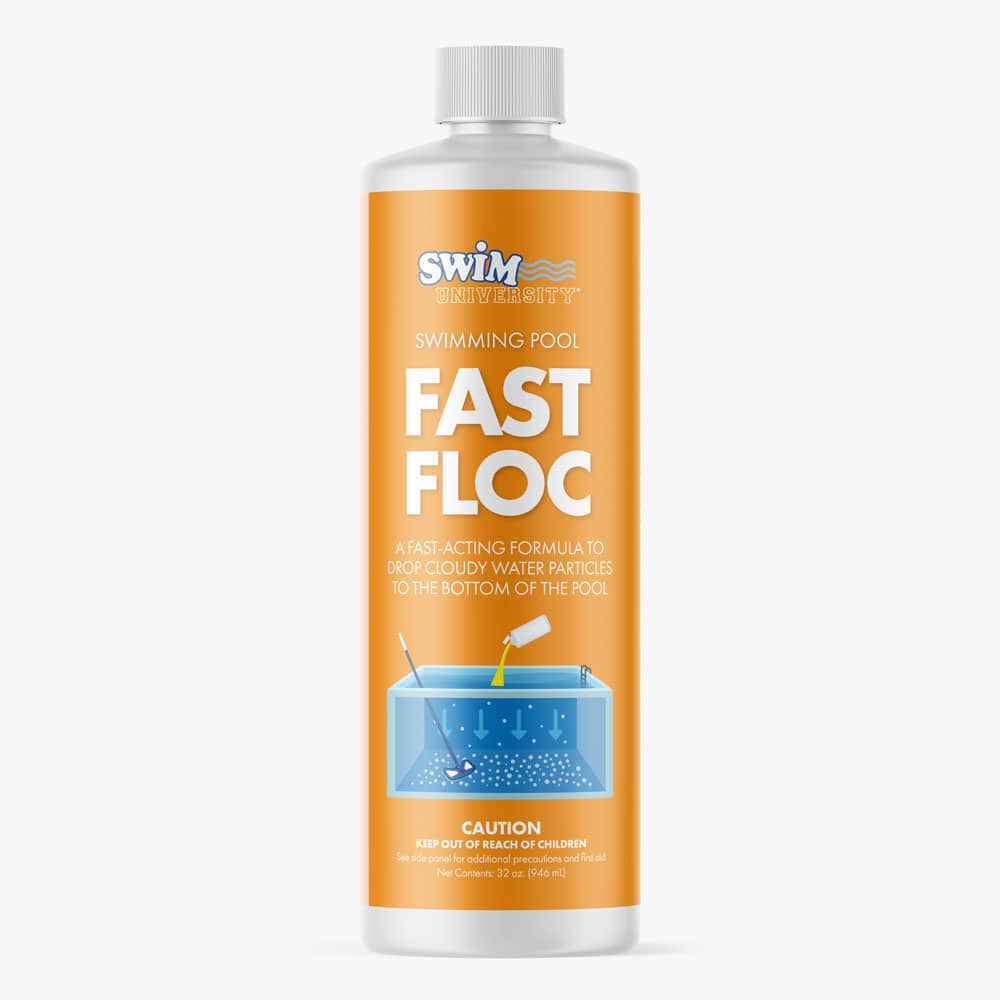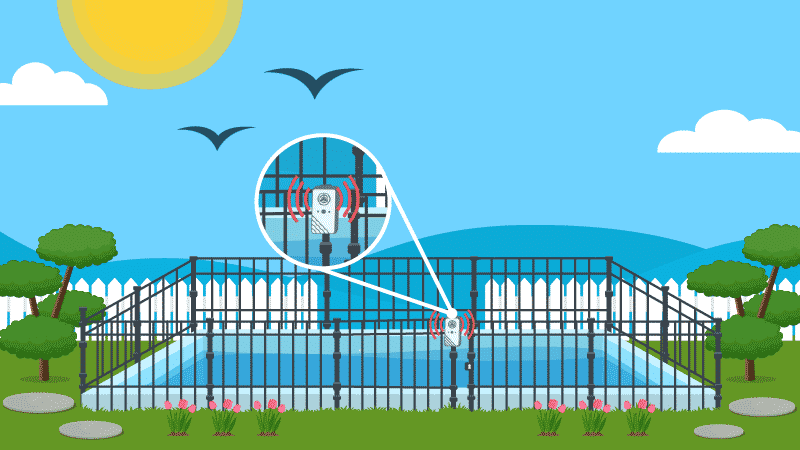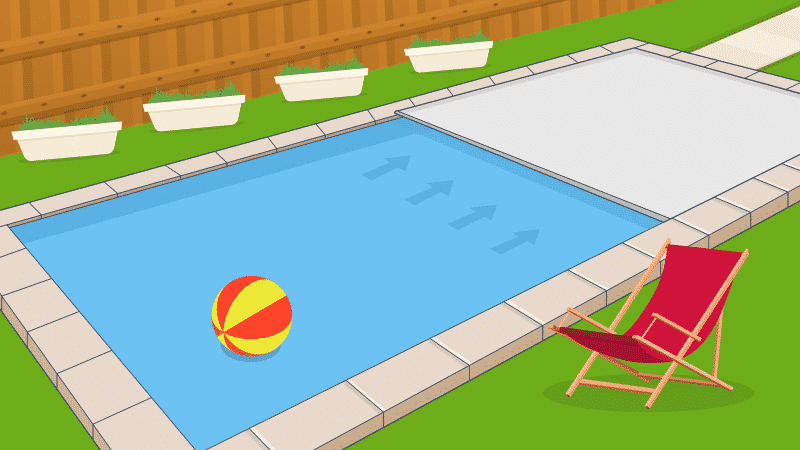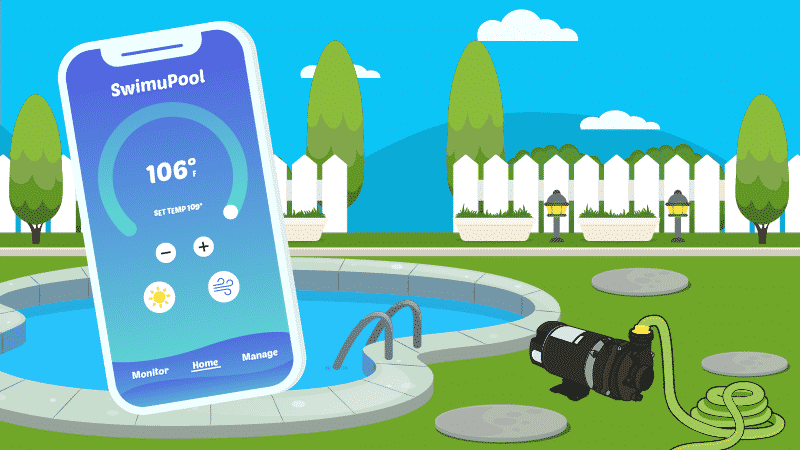Before you run out to the nearest pool store and plunk down a big ol’ chunk of change, make sure you know what pool supplies are actually necessary. You’ll save yourself some money, and you’ll be ready to take care of your pool like a pro.
NOTE: The following products are available to buy on either Amazon and InTheSwim.com. Check both sites for availability. All the links are affiliate links which means if you click a link and make a purchase, we earn a commission at no additional cost to you. It helps us keep the lights on 💡.
Cut the confusion with our easy-to-use video course. Save $1,000's on pool care and keep your water clean and clear for good!
Get Instant AccessOur Favorite Pool Chemicals and Water Testing Supplies
It’s hard to practice good pool maintenance if you don’t have the tools to accomplish it. Stock up on a few essentials, and then build from there. There’s no point in owning a pool if it’s all drudgery. Having the right tools at hand will make your life a lot easier, and allow you to enjoy your pool much more.
Pool Water Testing
We cannot stress how incredibly important water testing is for your pool maintenance. It’s best to test your water at least once a week. Regular testing lets you know when you need to add chemicals to your pool to prevent nasty bacteria and algae from moving in.
A simple but effective liquid test kit for chlorine pools and hot tubs.
These salt test strips are designed for measuring sodium chloride levels from 400 to 7,000 ppm. They provide accuracy comparable to liquid tests without the hassle of measuring and counting drops.
Tests for 7 important chemistries in seconds: Total Hardness, Total Chlorine, Total Bromine, Free Chlorine, pH, Total Alkalinity, and Cyanuric Acid.
This digital pool and hot tub water test kit checks for Free Chlorine, Total Chlorine, Bromine, PH, Alkalinity, Calcium Hardness, and Cyanuric Acid.
Instead, stock up on test strips. They’re not quite as accurate as liquid test kits, but they’re quick and easy to use, and cover all the basic levels you need to keep track of free chlorine, total chlorine, bromine (if you use that instead of chlorine), total hardness, total alkalinity, pH and cyanuric acid.
Pool Water Balancing
You need to balance your pool water by maintaining the proper pH, Alkalinity, and Calcium Hardness Levels. There are four different chemicals you need to help balance the water.
For increasing your alkalinity, you can either use our favorite Alkalinity Increaser or baking soda.
An affordable alternative to traditional chemicals, baking soda will naturally raise the alkalinity and pH in your water. It's also useful for cleaning tiles and surfaces.
Perfect for raising total alkalinity and pH in your pool.
NOTE: if you want to lower your alkalinity, you can use muriatic acid.
For controlling your pool pH balance, you can use pH Increaser and pH Decreaser.
This is the main chemical used to increase your pool's pH. So instead of using a branded version of pH Increaser, you can just use soda ash.
This is a proven way to make the water less acidic when swimming in pools. This chemical helps maintain the right level of pH.
Use this chemical to lower just the pH level in your pool water.
And finally, you need to control your calcium hardness level if you have an inground swimming pool. You can use calcium hardness increaser and it’s something you’ll only use about once per year. If you have a quick set-up pool (Intex), then you don’t need calcium hardness. Calcium hardness helps prolong the life of your pool lining whether it’s concrete, fiberglass, or vinyl.
Adding calcium hardness to your pool water will protect and extend the life of your pool walls including vinyl, fiberglass, and concrete.
Pool Sanitizer
Our favorite sanitizer for a swimming pool is chlorine. It’s hands down the most effective and widely used one. In fact, if you have a saltwater pool, then you have a chlorine pool because your saltwater generator turns salt into chlorine.
However, if you don’t have a saltwater pool, you can add chlorine using 3″ tablets in either your skimmer basket or a chlorinator. And we recommend that you use a chlorinator (here’s our favorite one).
Stock up and save money on chlorine tablets for the season by getting the standard 3-inch stabilized chlorine pucks.
If you want to reduce your chlorine usage by 50%, then we recommend using PoolRX. This device drops into your skimmer basket and adds minerals to your water. This allows you to keep your chlorine level between 0.5 and 1ppm instead of the normal 1 to 3ppm.
A simple device you add to your skimmer basket that supplies sanitizing minerals to your pool water so you can reduce your chlorine usage. Allowing you to only use 1ppm of chlorine.
If you have a smaller pool (under 10,000 gallons), then you can use granular chlorine for a hot tub.
Pool Shock
When your pool starts to smell like a hotel pool, it’s time to shock your water. Your pool actually shouldn’t smell like anything. This chemical smell means your sanitizer level is too low and is no longer doing its job.
Giving your pool a shock will bring sanitizer levels up where they need to be, kill bacteria, and ensure your water is clean. It can also help address mild cases of algae.
To accomplish all those things most effectively, choose a calcium hypochlorite or cal hypo shock. Prevent the dreaded hotel pool smell by shocking your water once a week, or at least once every other week. The more you use your pool, the more often you’ll need to shock it.
You’ll also want to shock your pool after major water level changes, pool accidents involving someone’s bowels, severe rainstorms, or when you need to kill pool invaders like algae. Here’s how to shock your swimming pool.
This fast-acting, quick-dissolving swimming pool shock kills bacteria, controls algae, and destroys organic contaminants in pools.
If you have a smaller Intex style pool or don’t have any current water issues, you can use non-chlorine shock which only takes 15 minutes to work. Here’s our favorite non-chlorine shock.
A powerful oxidizing agent that eliminates combined non-sanitizing chlorine (chloramines) and provides higher free chlorine levels. Helps eliminate algae growth as well as harmful bacteria. Ideal for use with chlorine or bromine sanitized applications, weekly maintenance, and will not affect other chemical levels
Our Favorite Pool Cleaning Gear
This is our collection of the best pool cleaning gear that every homeowner must-have. We’ve researched and picked what we thought was the best quality gear on the market.
Telescopic Pole
Telescoping poles are versatile cleaning support tools, especially since most come with the option for interchangeable heads. This means you only need one pole to use a pool skimmer, manual vacuum, or pool brush.
Depending on the width of your pool, you won’t have to constantly walk around the deck to chase debris. You’ll also have the ability to shorten the pole for cleaning tasks that require a little less reach and more control, like vacuuming the pool steps.
Get those hard to reach places with your leaf net, vacuum, or brush. This professional-grade telescopic pole is what the pros use to clean pools thoroughly.
Pool Skimmer (Leaf Net) and Brushes
The most used tool in pool maintenance is the skimmer/leaf net. It attaches to a telescopic pole so you can collect debris off the surface of the pool. And there are two types:
- Leaf Net: Deep net to catch a lot of debris.
- Skimmer: Flat net just for a quick surface skimmer.
We like using leaf net skimmers so you don’t have to keep emptying the skimmer as you clean. You can use a leaf net in one consistent motion.
It's a deep and durable leaf net pool skimmer that can collect a lot of debris all in one skimming. It also includes a lifetime guarantee. This is what the pros use!
The other frequently used tool is a brush. And there are two types as well.
- An algae brush has stainless steel bristles that will easily break algae’s hold on walls, steps, and wherever else it may be hiding. Important: Stainless steel algae brushes are best for concrete or gunite pools.
- A regular nylon bristle pool brush if you have a vinyl liner to avoid damaging it.
The wide pool brush with 360-degree reach helps clean hard-to-reach surfaces and tough crevices. Perfect for any type of pool, including vinyl liners, fiberglass, and painted concrete.
This brush helps remove dirt, contaminants, bacteria, and algae from porous surfaces. For unpainted concrete or gunite pools only.
Manual Pool Vacuum Head and Hose
Most compact vacuum cleaner heads are compact, giving you more control when you’re cleaning your pool. Sure, an automatic cleaner can save your time a muscle strain, but it might miss hard-to-reach spaces. A manual option in your pool supplies can help you spot-clean minor problem areas before they become major problem areas.
Designed to clean concrete and fiberglass pools. The vacuum head has a flexible design enabling it to fit the contour of your pool and will not scratch or damage.
The weighted triangle pool vacuum head is a great way to clean your pool. The weights on the bottom of the vacuum head help to keep it in place while vacuuming.
Tip: To use a manual vacuum, you’ll also need a telescoping pole and a vacuum hose.
Made to last and designed to work with standard swimming pool vacuum head and telescopic pole for manual vacuuming. The swivel cuff end connects directly onto the vacuum head, whereas the non-swivel end connects to the skimmer.
Automatic Pool Cleaner
OK, so you don’t absolutely need this one as long as you have a manual vacuum. But an automatic pool cleaner can save you a lot of time and effort by helping to keep your pool clean, even when you’re not around.
Think about it. You have a rough day at work, traffic on the way home is terrible, and all you want to do when you finally get home is take a refreshing dip in your clear, clean pool. Except, while you were at work, a bunch of leaves and other stuff blew into the water, so before you can relax and enjoy your pool, you have to vacuum it. Ugh. You may as well stay inside.
But if you had an automatic cleaner zipping around the pool all day, you’d come home to clear water ready for you to dive in with no hassle at all. We think this makes it one of the most helpful pool supplies you can have in your pool care arsenal.
Designed for above ground swimming pools up to 30 feet. It takes less than 2 hours to clean your pool with built-in water filtering and scrubbing.
Ideal for pools up to 50 feet. Cleans large pools in just 2 hours. Includes dual scrubbing brushes and a built-in schedule using 3 settings: every day, every other day, or every 3rd day.
Our Favorite Pool Accessories
This is hands down the best digital pool thermometer we tested. Easy to set up, quality build, and all packaged in an elegant design.
A lot of pool stores will have a ton of supplies they say you absolutely need to get the job done. And you may find other pool supplies later on that you can’t live without. We all have our own ways of handling pool maintenance with little tweaks here and there to reach the same end goal: a clean, healthy pool.
You’ll certainly add to your stock of pool supplies as you become a more seasoned pool owner. Just make sure you have the essentials to keep your pool clean, and you’ll get a lot more enjoyment out of your investment. And isn’t that the way it should be?
Happy Swimming!
Here Are 3 Ways to Get More Pool Maintenance Help
- Download our FREE Pool Care Cheat Sheet: It’s a free, easy-to-use guide to help you keep track of taking care of your pool.
- The Pool Care Course: You’ll get 30+ step-by-step videos and a downloadable guide with everything you need to know about pool maintenance.
- The Pool Care Handbook: It's an illustrated guide to DIY pool care, including water chemistry, maintenance, troubleshooting, and more.
